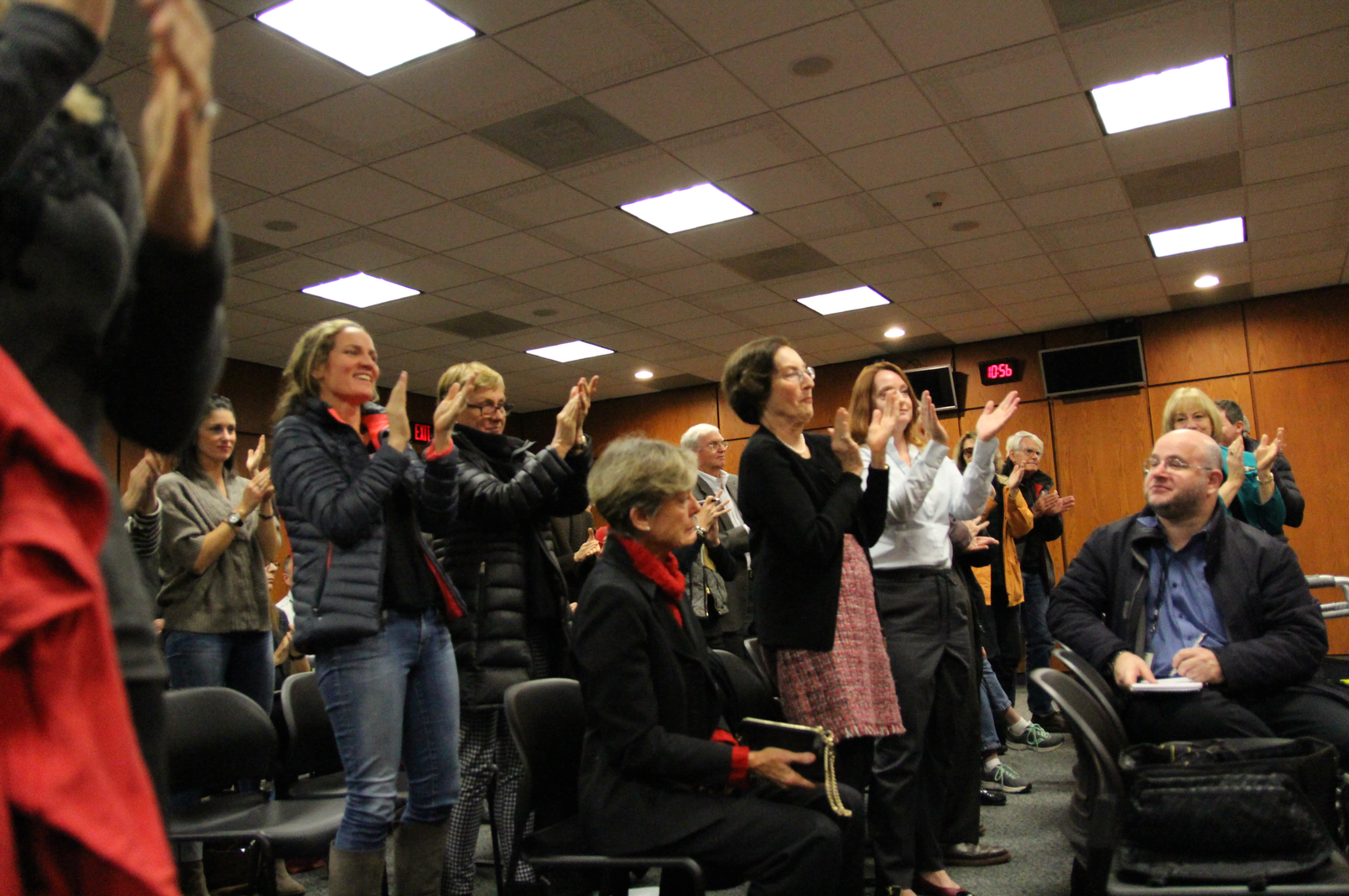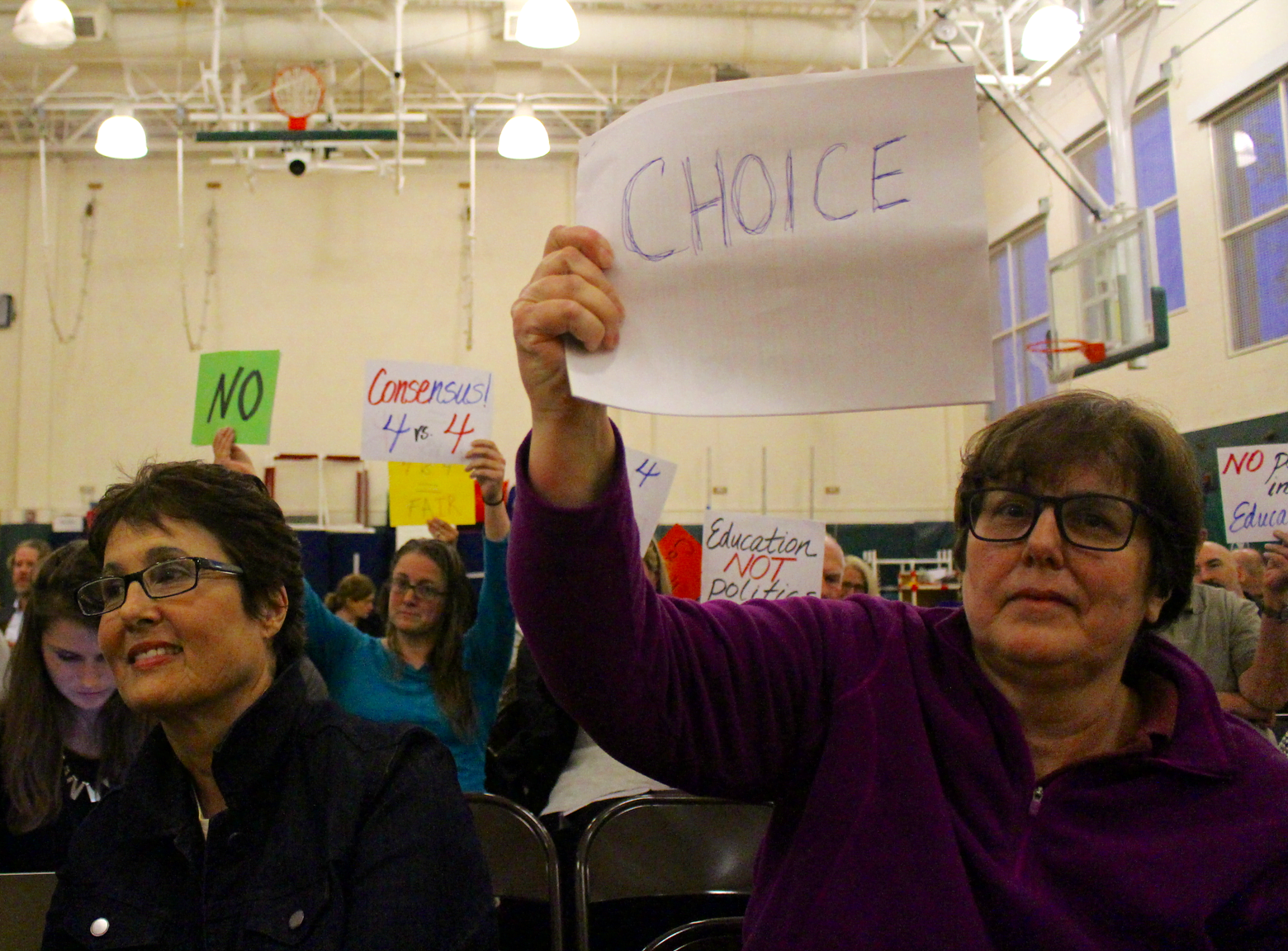Greenwich experienced a bit of déjà vu last week when Item 29 appeared on Sept 18 RTM call.
Item 29, the last item on the agenda, calls for a change in the way the Board of Education is composed to create “competition and accountability.”
Bill Lewis organized enough signatures (28 signatures from six families) to get Item 29 onto the agenda.
The proposal invokes CT General Statute 9-204b, which would allow the town to adopt an ordinance making possible inter-party competition for seats on the school board, and ultimately either Republicans or Democrats could earn a majority of no more than 5 of the 8 seats.
In 1996 Mr. Lewis introduced something very similar only it was for charter change. This proposal is to create an ordinance.
In 2017 a proposal for Board of Education charter change was a highly charged controversy in Greenwich.
And it tore the town apart.
Would having 5 members of one party make the board more or less partisan? Would it avert the recent tie votes for chair? Would it be more democratic?
Back in 2016 the school board was stymied with tie votes between a Republican and Democrat for the chairmanship. For a nominee to become chair of the board 5 out of 8 votes are required.
After three partisan tie votes, a statute kicked in that turned the decision over to the Board of Selectmen. The Republican controlled Board of Selectman led by Peter Tesei wound up voting for Republican Peter Sherr as school board chair.
School board terms are four years, staggered so there are four openings every two years. There are four members from each party on the board, and typically each party runs two candidates, so candidates are de facto guaranteed seats. Even if a party nominates three or four candidates, only two from each party win a seat.
The RTM explanatory comments for Item 29 on Sept 18 say that under the present system the best voters can hope for is “Democracy Lite” when a party nominates more than two candidates.
There have been instances when people have been passed over by the DTC or RTC for nomination and then petitioned their way onto the ballot, occasionally injecting some competition into the vote.
In 2017 Republican school board member Peter Bernstein successfully petitioned onto the ballot after being passed over by the RTC despite being an incumbent.
Bernstein’s story may foreshadow Item 29 in 2023 since he campaigned against school board Charter Change, while the two Republicans endorsed by the RTC campaigned in favor of it.
In 2016, the Board of Selectmen appointed a committee to review the Town Charter in regard to the Board of Education. The idea was to create a system where five seats would be up in one election cycle, and three in the other.
Proponents of charter change talked about “choice.”
Opponents of charter change talked about preserving “a balanced Board of Education” and called charter change a Republican power grab that would to give their party control of the school board.
At the time Republicans had a voter registration advantage in town. Today there are more registered Democrats than Republicans.
In the lead up to the Nov 2017 municipal elections, Republican BOE candidates, Peter Sherr and Jason Auerbach, made support for charter change their signature campaign issue.
In the end, Mr. Bernstein’s successful petition, top vote-getter status in the election, and election as chair of the board were all perceived as a de facto referendum on charter change.
Not long after the election, there was a BOE hearing on Charter Change at Central Middle School.

By the end of the November, charter change in Greenwich was effectively dead after the Selectmen voted to postpone the item indefinitely.
After that vote then First Selectman Peter Tesei said it was unfortunate that the issue had become charged with emotion. He said he had heard from many residents that they wanted a non partisan board.
Subsequently Mr. Bernstein said, “Voters spoke loudly that they wish for members to collaborate despite their party registration.”
Still the school board has had repeated tie votes.
In 2022, after two tie votes for chair, and just before the decision was kicked over to the Board of Selectmen, again led by Republicans, the BOE voted to install Joe Kelly as chair.
After the first tie vote Republican First Selectman Fred Camillo said on WGCH radio that if the board could not break their tie, his Republican controlled Board of Selectmen would pick the chair, and that he would of course pick Joe Kelly.
Mr. Kelly is not running for another term this November, and many people are speculating who the next First Selectman might be after November and who he or she would pick if the school board becomes locked in tie votes again.
When Item 29 comes up in the RTM later this month, the discussion might center around whether the outcome of a new ordinance would be a more or less bi-partisan school board.

Item 29
In the explanos for Item 29 it says, “When a board’s composition is frozen perpetually with equal representation from each political party, no elected officials can really be said to be in charge, and therefore accountability is limited. To address this situation, several decades ago the State legislature enacted Section 9-204b (which is printed below, with emphasis added). By adopting the provisions of this section, the winners would be the top vote-getting candidates regardless of party affiliation (up to the limit of the State’s minority representation requirement (Sec. 9-167), which is five of eight.)”
Further, the explanos notes that eight nearby DRG-A school systems have boards with odd number memberships.
“Most (six of the eight) have boards with an odd number of members, which by design makes a politically ‘balanced’ board impossible. Our ‘peer’ school districts, West Hartford and Fairfield, with seven and nine members respectively, also have avoided having boards in rudderless equipoise.”
Finally, the explanatory comments say, “None of these towns mentioned above puts so much faith in their political parties as to give each a guaranteed quota of seats. They trust instead in a system based on competition and accountability, and so should Greenwich.”
Item 29 was referred to the Education Committee and the Legislative & Rules Committee.
Note: this story is updated to reflect that in 2022, after two BOE tie votes, and after the First Selectman said on WGCH that if the decision were kicked to the Selectmen he would pick Mr. Kelly for chair. The Selectmen did not vote on a chair.
See also:
After Two Tie Votes, Greenwich Board of Education Votes Unanimously on a New Chair Dec 15, 2022
Vote on Board of Education Chair Stymied by Tie Vote in Flashback to 2016 Nov 17, 2022
Postponed Indefinitely, Educational Charter Change in Greenwich is Effectively Dead Nov 30, 2017